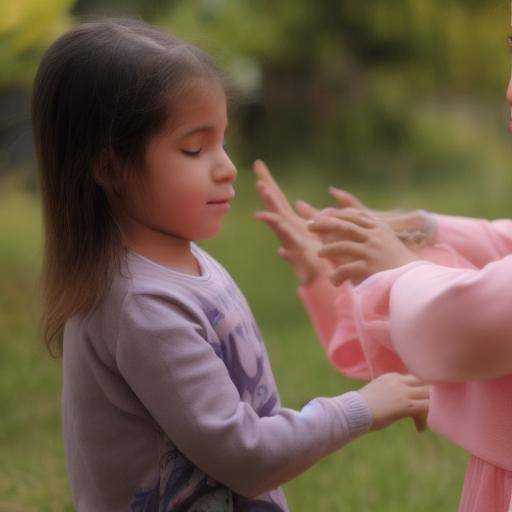
Introduction
In modern life, we face constant challenges that can affect our ability to maintain emotional balance and mental stability. In this context, gratitude plays an essential role in the development of self-control, promoting emotional and mental well-being. In this article, we will explore in depth the relationship between gratitude, self-control and emotional well-being, providing valuable information, detailed analysis, practical advice, and the knowledge necessary to understand the importance of these qualities in everyday life.
History and Background
Gratitude has deep roots in multiple cultures and traditions throughout history. From ancient philosophy to religious practices, gratitude has been regarded as a fundamental virtue for personal well-being. In the modern context, positive psychology has placed great emphasis on the positive effects of gratitude on mental and emotional health.
Origins and Evolution
Gratitude has been a subject of interest in philosophy since ancient times. Philosophers such as Aristotle and Cicero explored their importance and their connections to virtue and happiness. In religious traditions, gratitude has been considered a form of connection with the divine and a means of cultivating humility and inner peace.
Significant developments
The scientific study of gratitude gained momentum in the twentieth century with the creation of positive psychology. Researchers like Dr. Robert Emmons and Dr. Martin Seligman has conducted extensive studies on the effects of gratitude on mental and emotional health. His research has helped to validate the importance of gratitude in everyday life.
Detailed Analysis
The effects of gratitude on mental health have been the subject of numerous scientific studies. It has been shown that simple practices of gratitude, such as carrying a daily of gratitude, can have a positive impact on the perception of well-being and happiness. Gratitude acts as a driving force behind self-control by fostering a positive attitude, reducing stress and strengthening emotional resilience.
Benefits of Self-Control and Emotional Welfare
Self-control is a crucial element for personal development and emotional stability. The ability to regulate our emotions and actions in difficult situations is essential to maintain calm and make rational decisions. On the other hand, emotional well-being is the result of an internal balance that allows us to experience positive emotions, manage stress and develop healthy relationships.
Importance of Gratitude in Self-Control Development
Gratitude and self-control are intrinsically related. The constant practice of gratitude strengthens the ability of a person to control their impulses, regulate their emotions and maintain a positive perspective even in challenging circumstances. Gratitude promotes patience, understanding and empathy, which in turn fuels self-control and emotional stability.
Practical Tips for Cultivating Gratitude and Self-Control
- Taking a diary of gratitude: Taking a few minutes each day to reflect on the things we are grateful for can have a significant impact on our emotional and mental state.
- Practice full attention: Full attention or mindfulness helps us stay at the present time, which can strengthen both self-control and gratitude.
Conclusion
Development of self-control through gratitude is key to emotional well-being. By cultivating gratitude and practicing self-control, we can improve our quality of life, strengthen our interpersonal relationships and face the challenges with greater emotional stability. Gratitude and self-control are fundamental pillars for a full and fulfilling life.
Frequently asked questions
How can I cultivate gratitude in my daily life?
Gratitude can be cultivated by simple practices such as carrying a daily of thanksgiving, verbally expressing gratitude to others, focusing on the positive in difficult times and becoming aware of daily blessings.
How can I improve my self-control?
Self-control can be improved through the practice of full care, the identification of emotional triggers, the establishment of realistic goals and the development of healthy coping strategies.
What benefits can I expect when developing gratitude and self-control?
Growing gratitude and self-control can lead to greater satisfaction in life, better stress management, more positive interpersonal relationships and a greater sense of emotional well-being.
Is gratitude and self-control related to mental health?
Yes, gratitude and self-control are closely related to mental health. Both qualities have shown positive impacts on anxiety, depression and general well-being.
How can I encourage self-control in my children?
Fostering self-control in children involves modeling the desired behavior, establishing clear limits and providing opportunities for self-control in situations appropriate to their age.
Is it possible to practice gratitude in the midst of significant challenges?
Yes, the practice of gratitude is particularly effective in difficult times. Recognizing blessings in the midst of challenges can provide comfort and emotional strength.
Conclusion
Gratitude and self-control are essential elements for emotional well-being and mental stability. By recognizing the importance of these qualities in daily life and committing ourselves to cultivating them, we can significantly improve our quality of life, our interpersonal relationships and our ability to confront the challenges with resilience and positivity.
This article provides a complete overview of the relationship between gratitude, self-control and emotional well-being, offering valuable information, detailed analysis and practical advice for their application in everyday life.






















































